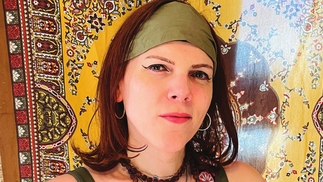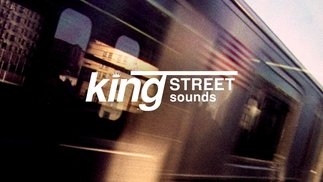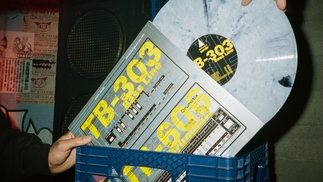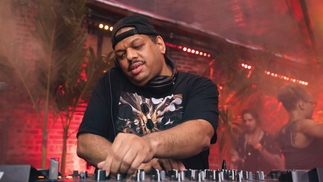FRANCK ROGER: BELIEVE THE HYPE
<p>Franck Roger is the man behind the Real Tone label and new Home Invasion imprint...</p>
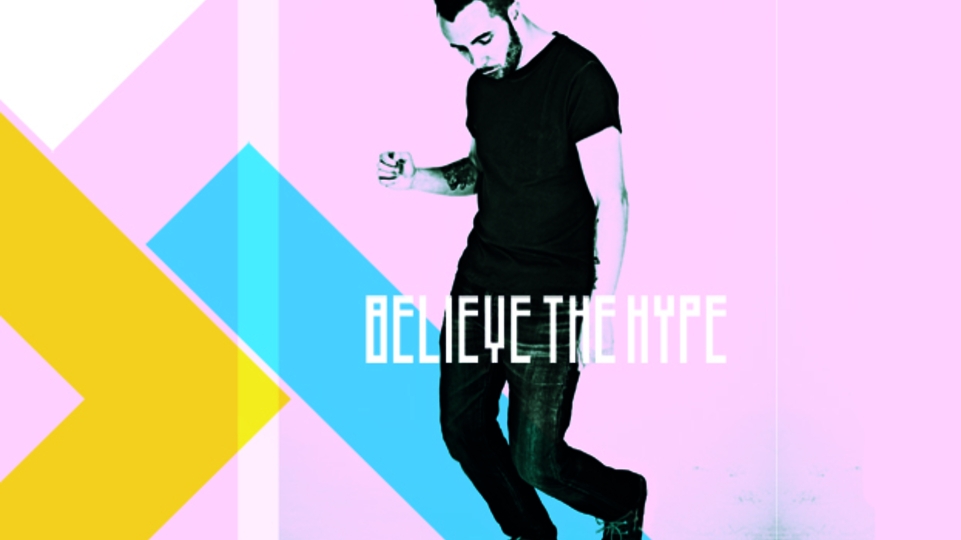
The first time he heard ‘Promised Land’ by Joe Smooth, says 38-year-old French DJ/producer Franck Roger, he was desperate to find out everything he could about house music. Back then, when that record came out, he was too young to get into the Paris nightclubs that played the tune. So, instead, he fuelled his desire for the 4/4-driven tracks from Chicago and the US that he heard on Radio FG — played by the likes of DJ Gregory and DJ Deep — by going record shopping.
Now, he says, he still lives in Paris and still buys up to 15 bits of vinyl a week. But these days, he's the one making the house tunes that get played in clubs: ‘Who Knows the Truth', ‘No More Believe’ and ‘After All’, to name a few. Since he released his first tune in 1999 (a co-produced house track called ‘Tamashi’, inspired by the sounds of Kerri Chandler and Blaze) his production sound has sat somewhere between soulful garage and deep house. With his co-owned Real Tone Records, and new label Home Invasion, Franck’s been busy since then, carving out a niche all of his own — and because so many people are into his productions he’s getting booked to play gigs all over the world. On his home turf, he’s currently got a residency at Badaboum in Paris.
With two albums already under his belt, Franck’s in no hurry to record a third. Instead he’s busy working on a string of singles and remixes. Just don’t call them French house...

What made you start Real Tone records?
“Me and Lionel met at Betino’s Records, a shop in Paris where I worked for four years. During that time I started to release my own music on Straight Up Records. Lionel was a customer at Betinos and we became friends and discovered we had the same taste in music. Eventually we decided to start Real Tone — at first to release our own music — then we opened the label to many famous producers and remixers.”
Things seemed to really change for you when you released 'No More Believe'. Can you describe what happened after that came out?
“This song opened me up to the US market, I think because I produced it in a similar way to how MAW used to make music — with a strong vocalist, French but with a gospel and R&B-style background, and a killer keyboardist. It came out on Kenlou (MAW’s label), which was an amazing feat for me. I think I might have been the first French guy to sign a tune to their label and, after that, I seemed to get a lot more DJ gigs too.”
What productions are you working on at the moment and what are they like?
“They are more modern I think, even if I still have an old school way of making my music — with analogue kit and just the way I work. I try to put different influences — from deep, to techno music — in all my tunes. I don't like to be in a box: keeping the same drum kit, same synths, the same sound generally. When I make music I want to have the freedom to go anywhere I want to go.”
Tell me about Home Invasion, your new label project?
“Home Invasion is a vinyl-only label. It’s a label made for curious, passionate people who will go in a record shop and spend time trying to find something new that will make their next gig different from other DJs, that are playing the same top 50 tunes. Home Invasion has the same music ethics of Real Tone, but it’s for a more underground market.”
You love playing with vinyl still and I know you buy lots of records. Where do you go record shopping?
“For technical reasons I don’t play vinyl when I travel because DJ booths these days just aren’t set up for it. Clubs today are made for digital music. But I still buy vinyl. I go record shopping twice a week to Synkrophone. I buy at least 15 new records a week, them put them all into Logic and burn them onto CD after that. CDs are easier to play when you’re DJing. Playing on CD means I can loop parts that I want — using the CDJs.”
I’ve heard you’re anti-Serato. Why is that?
“I’m not exactly anti-Serato. It’s a cool program and I used to use it to DJ in clubs when it first came out. I think it's good to use at home for doing podcasts, or when you run a radio station, say, because it gives you access really quick to anything you have in mind. My problem with Serato started when I was playing in a club one night and it crashed during a set. I’d had problems connecting it before I got on the decks and it ended up being a real mess because I was playing at peak-time. That’s why, now, I prefer to play with CDs. I feel like I can see more clearly what I’m going to play and I don’t spend half of the night staring at a screen. I think when you DJ using CDs — or vinyl — you connect with the crowd more. You can look at them and they love to look at you. There’s more of a connection that way.”
What do you think makes a good DJ?
“A good DJ really believes in what they play. A good DJ knows all the tunes they play really well — every single track. And a good DJ will dance and connect with the crowd.”
DJs apart, which dance music artist has been the single greatest influence on you musically?
“If we talk about house music, Jovonn is the producer that really influenced my music when I started to produce. It was something about the energy of his music. I also love Blaze, Ron Trent and Joe Claussell. But the list is long.”
Your parents were into disco when you were younger — what songs do you remember hearing and what did you like about them?
“My parents loved Quincy Jones tunes and they loved pop music too, like Michael Jackson. They also loved disco — music on Prelude — and some funk and jazz. At the weekend they’d go to clubs and sometimes they’d take me with them. I remember they’d sit me on a high chair and I’d be playing pinball. I remember watching my parents dancing — I was only about 10-years-old. I was allowed in because my parents knew the DJs. It was mostly disco and new wave music, and it really had an effect on me.”
You started DJing in 1997. What made you first take to the decks and what did you play?
“I started playing house music from New Jersey and Chicago and I’d spend hours in my bedroom, practicing with the few records I’d collected. Ever since going to clubs with my mum and dad, I’d wanted to be a DJ. I just loved the energy that a DJ got in a club. The DJ has the power to unify people and make them smile. It’s all about creating emotions through the music, using a huge soundsystem. It’s like a ceremony.”
France has a strong legacy for house music with Daft Punk, Cassius, Laurent Garnier and even Bob Sinclar and now, on a more EDM tip, David Guetta. How much has this legacy affected the way you make and play music?
“Laurent Garnier is the one that I was listening when I was 17. I was never into Daft Punk or Cassius, even though I respect what they do. My house music background was definitely US house — from NYC to Chicago and Detroit — and Laurent Garnier was the only French DJ who played the house music I liked in the 1990s. He played from techno through to house in a very clever way — that really inspired me.”
Thanks to Franck for playing our DJ Mag Ministry party on the 5th July - and absolutely killing it!
IN THE BOX
Read below for Franck’s 10 top ranking tunes of the summer...
1. Sean Dixon 'Unknown EP' Final Chapter 003
2. Royer 'Gracie' Material Image
http://www.redeyerecords.co.uk/vinyl/52863-matimg01-royer-skokie-intrud…
3. Elbee Bad 'Do the Freaky Dance' Rawax
4. Jovonn 'Trippin' Appolonia
5. Cristi Cons 'Anatrack' Meander
6. Blackhall & Bookless 'Morgans Freeman (Fred P Reshape)' Jaunt
7. Matrixxman 'Holographic' Red Eye Records
8. Skybox 'The Knockers' Wax Candy 02
9. Franck Roger 'Clap ur Handz' Home Invasion
10. Kennedy Smith 'Related to the Brain Size' Bright Sounds
